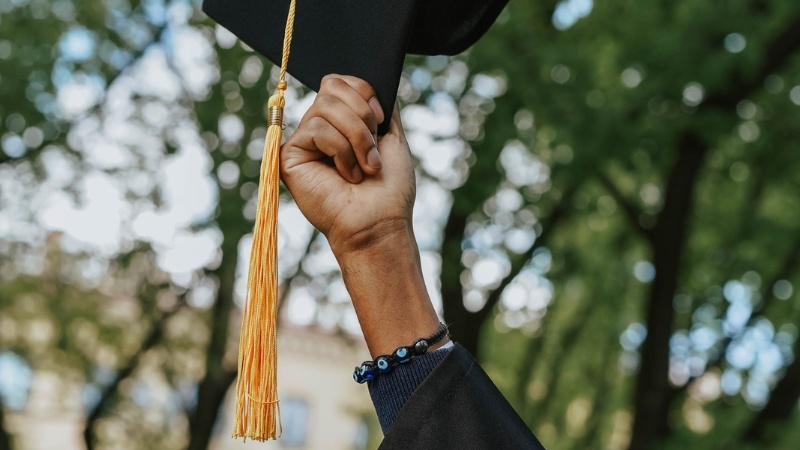
Historically Black Colleges and Universities have always held a special place in the Black community. They provide a space where Black people can grow, thrive, and exist unapologetically — not only educationally, but also culturally. They were created during a time in American history when instances of discrimination and oppression toward Black people were open and prominent across the country. During Black History Month, it’s important to pay homage to HBCUs and the impact they have had in the Black community, especially around college access. They created educational opportunities that were otherwise very limited, if at all available, for the Black community. HBCUs have been an integral part of educating the Black community and continue to produce leaders in every aspect of society.
Rakiba Mitchell, MCAN’s 2022 Chief Mate Award winner and School Counselor Fellow, intentionally integrates HBCU awareness into her school community. Mitchell is a school counselor at Southeastern High School in Detroit. She is the only counselor on the DPSCD Taskforce and is the founder and CEO of HBCU Legacies, a team of educators who offer HBCU exploration, application, and funding resources. In a time where college visits are crucial to postsecondary planning, experiencing the unique beauty of HBCUs in person can be a challenge, as they span the United States. Mitchell created a virtual interactive learning experience that allows students to not only learn the history of each college, but also experience a homecoming and the battle of the bands competition. They can listen to a national HBCU choir sing the “Lift Every Voice and Sing,” often called the Negro national anthem or the Black national anthem. They can learn about Black fraternities and sororities (The Divine 9) and hear from former students about attending an HBCU. For Black History Month, she created a calendar where students can learn more about the 103 of the 107 HBCUs still operating today.
It’s important to show and share with students the different college opportunities that they have open to them, but also to teach how it ties into the broader spectrum of Black History. Mitchell and her colleagues at Southeastern High School explore the many facets of Black culture with their students. She has researched the many ways Black people continue to tell their stories, to not only teach students the history, but also to widen students' viewpoint of who they are. Part of the college conversation is being able to show students all of the possibilities of who they can become. In communities of marginalized students, representation matters. When Mitchell meets with students to discuss their postsecondary plans, she makes sure to incorporate HBCUs in the match and fit conversation about college. She even showcases staff members who attended HBCUs to show students that not only do these spaces continue to exist for Black students, but that HBCUs foster Black excellence.
This Black History Month, and in recognition for National School Counselors week, MCAN lifts up Rakiba Mitchell, Southeastern High School, and HBCUs for all the work they do to improve college access, persistence, and attainment for Black students. It takes a village to foster and cultivate excellence in the next generation. We are appreciative and grateful for all of their work to help our Michigan students.
To learn more about Rakiba Mitchell or explore the resource she has created for her students, follow the links below:
- HBCU Calendar
- Black History Month 365: Virtually Exploring HBCU Excellence
- Black History Month at Southeastern High School: Owning Our Stories
- Rakiba Mitchell Bio
- HBC&U Legacies Bio

Photo: Rakiba Mitchell accepts the Chief Mate Award at MCAN's annual conference.
Historically Black Colleges and Universities have always held a special place in the Black community. They provide a space where Black people can grow, thrive, and exist unapologetically — not only educationally, but also culturally.